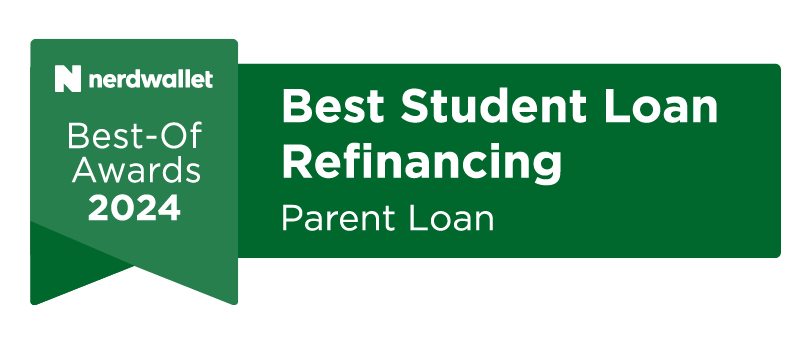Refinance Student Loans with ELFI
There’s a smarter way to refinance your student loans. At ELFI, we offer a simple online application process paired with guidance from a Student Loan Advisor who’s here to help every step of the way. Best of all, you can prequalify in minutes, without it impacting your credit score.

Benefits of refinancing student loans with ELFI
Lowering Your Interest Rate
A primary benefit of student loan refinancing is the opportunity to lower your interest rate or adjust the type of interest rate you currently have, based on factors like your credit score, credit history, and income.
Adjusting Your Loan Terms
Choosing a longer repayment term may reduce your monthly payments, while a shorter repayment term may help you pay off your debt faster and save you money in interest over your loan term.
Consolidating Monthly Payments
Juggling multiple student loan payments? Refinancing gives you the ability to consolidate your student loans into one monthly payment–including federal loans–with a competitive interest rate.
Adding or Removing Cosigners
By refinancing, you have the opportunity to remove any cosigners on your original loans or add a qualified cosigner. Adding a more qualified cosigner could help you earn a lower interest rate.
Low Rates. Flexible Terms.

How Does Student Loan Refinancing Work?
Refinancing student loan debt doesn’t have to be a headache. We’re here to help address the loan-based challenges that have made repayment so difficult. High rates? Unmanageable monthly payments? Let us help fix that. Refinancing with ELFI is as simple as 1, 2, 3.
1. Prequalifying
See your estimated plan options within minutes without impacting your credit score.
2. Applying
Select a plan with the rates and terms that fit your needs.
3. Uploading & Signing
Simply upload screenshots or photos of your required documents, then sign your paperwork electronically.
ELFI Named Best Student Loan Refinancing for Parents
Whether you’re refinancing parent loans or student loans, ELFI’s competitive rates, flexible terms, and personalized service are among the best.

Estimate Your Potential Savings
Enter your current loan balance, monthly payment, and either your interest rate or remaining term. Our student loan refinance calculator will help you review your estimated monthly payment options and potential savings.
REFINANCING CAN FEEL COMPLICATED.
Having a Student Loan Advisor Makes Refinancing Easy.
When you apply to refinance with ELFI, you’ll be paired one-on-one with a Student Loan Advisor. They’ll guide you through the entire process from start to finish and are available by phone, text, or email and answer any questions you might have along the way.

Considering Refinancing with a Cosigner?
Check out our guide to student loan refinancing with a cosigner!
A More Affordable Future Starts Now
Prequalify to see your estimated rates in minutes without impacting your credit score.
Excellent Customer Experiences
Rated 4.9 out of 5 on TrustPilot
When you combine personalized service, an easy application with no fees, and flexible loan options, you get 5-star customer experiences.


